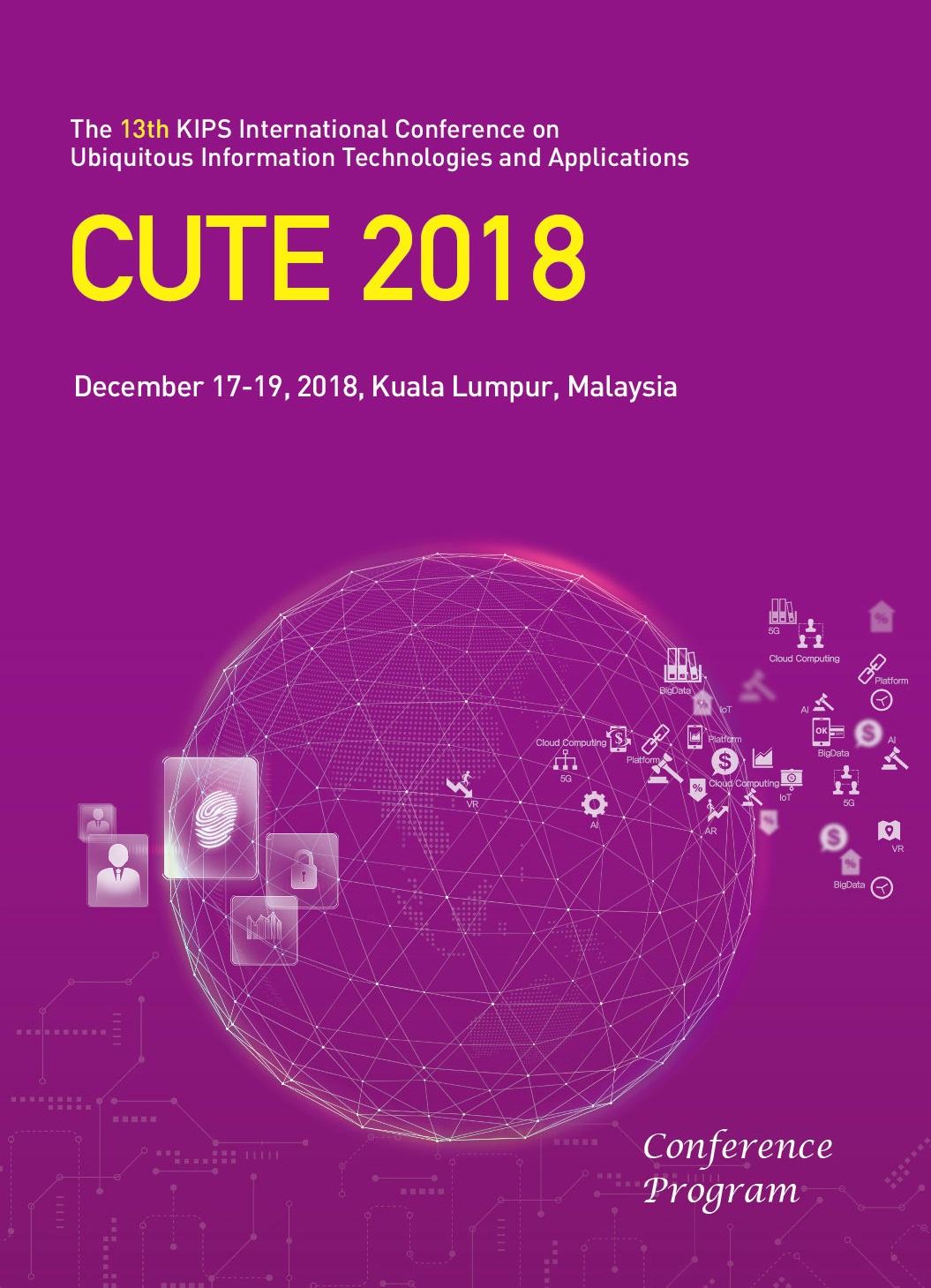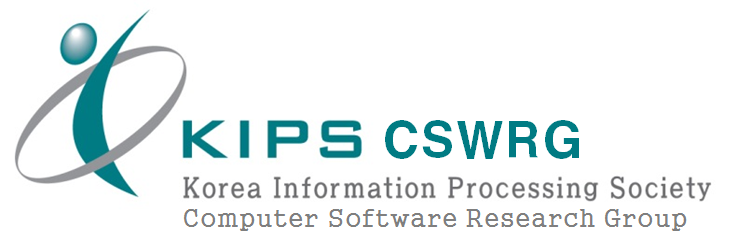[Sep. 19, 2018] All reviews were sent for the accepted papers. If you do not receive your review, please request to Prof. Yunsick Sung (yunsicksung@gmail.com).
[Sep. 12, 2018] All author notifications were sent for the accepted papers until Sep.7, 2018. If you do not receive any mails, please mail at yunsicksung@gmail.com.
[Sep. 6, 2018] Important date is updated.
[Aug. 31, 2018] The submission is no longer extended.
[Aug. 16, 2018] The submission due is extended to Aug 30, 2018.
The 13th KIPS International Conference on
Ubiquitous Information Technologies and Applications
(CUTE 2018)
Dec 17-19, 2018, Double Tree by Hilton Hotel, Kuala Lumpur, Malaysia
http://cute-conference.org/2018







| The 13th KIPS International Conference on Ubiquitous Information Technologies and Applications (CUTE 2018) will be held on Dec. 17 - 19, 2018, Kuala Lumpur, Malaysia. The purpose of the CUTE 2018 is to promote discussion and interaction among academics, researchers and professionals in the field of ubiquitous computing technologies. Ubiquitous computing will require a new approach to fitting technology to our lives. The advent of new computing devices, and the seamless connectivity between these devices, thanks to diverse wired and wireless networks, are enabling new opportunities for a user to perform his/her operation all the time and everywhere. These seamlessly connected devices are ranging from mobile handset to wearable computers. Also, it is expected that these devices will become so pervasive that they will be embedded in the surrounding physical environment, and transparent and invisible to a user. Such devices, whether carried on by people or embedded into other systems, will constitute a global internetworking infrastructure and likely to provide a new level of openness and dynamics. Ubiquitous computing has as its goal the enhancing computer use by pushing computational services out of conventional desktop interfaces into physical environments, but effectively making them transparent forms and calm mode of interactivity. Recent advances in electronic and computer technologies have paved the way for the proliferation of ubiquitous computing and innovative applications that incorporate these technologies. This conference provides an international forum for the presentation and showcase of recent advances on various aspects of ubiquitous computing. It will reflect the state-of-the-art of the computational methods, involving theory, algorithm, numerical simulation, error and uncertainty analysis and/or novel application of new processing techniques in engineering, science, and other disciplines related to ubiquitous computing. In this conference, several topics on the specific themes for intensive discussions are also planned according to the areas of interest. |
 Topics
Topics
Track 1. Ubiquitous Communication and Networking
- Ubiquitous wired and wireless networks
- Ad-hoc networking
- Intelligent sensor network/RFID
- Ubiquitous/pervasive platform and middleware
- Automated, adapted and situated service
- Open service architecture
- Intelligent web service
- Mobile and ubiquitous multicasting
- Next-generation Internet & IPv6
- Mobile network (NGN/BcN)
- Wireless communication technology
- Optical networks
- Home networks
- Future Internet
- Context-aware acquisition and representation
- Context-aware media processing
- Context database/management
- Context framework and middleware
- Context analysis and utilization
- Context/Location-aware application
- Energy-aware system
- Resource-aware computation
- Self-aware computers and systems
- Distributed ubiquitous middleware
- Ubiquitous intelligent applications
- Ubiquitous intelligent systems
- Intelligence grid platform and service
- U-Health care system
- Smart appliances and wearable devices
- Haptic interfaces and interactions
- Design principles for multimodal systems
- Auditory and haptic displays
- Multimodal gaming and entertainment
- Novel systems and interactions using other modalities (e.g. taste, smell)
- Computer imaging and graphics
- Ubiquitous learning
- Information security and cryptography
- Security services/mechanisms/protocols in network/system levels
- Access control in network/system levels
- Identity, privacy, and trust issues in ubiquitous society
- Risk estimation and management
- Formal verification for security services & mechanisms/protocols
- Performance analysis for security services & mechanisms/protocols




